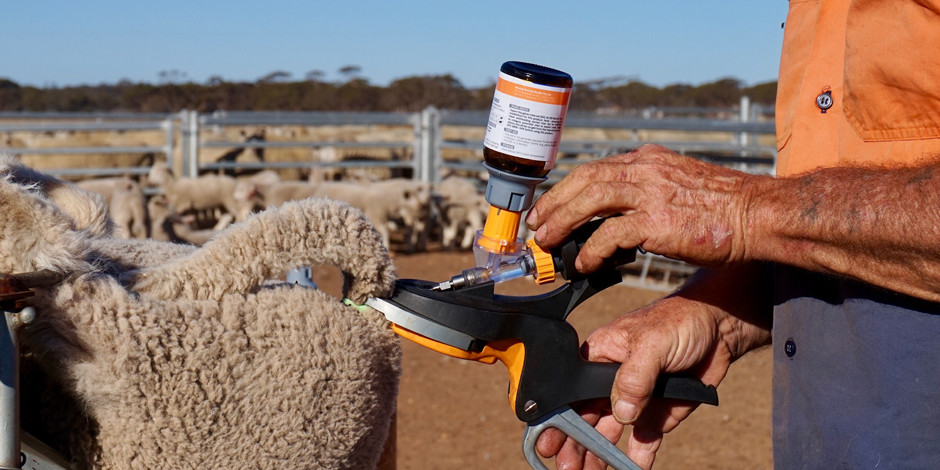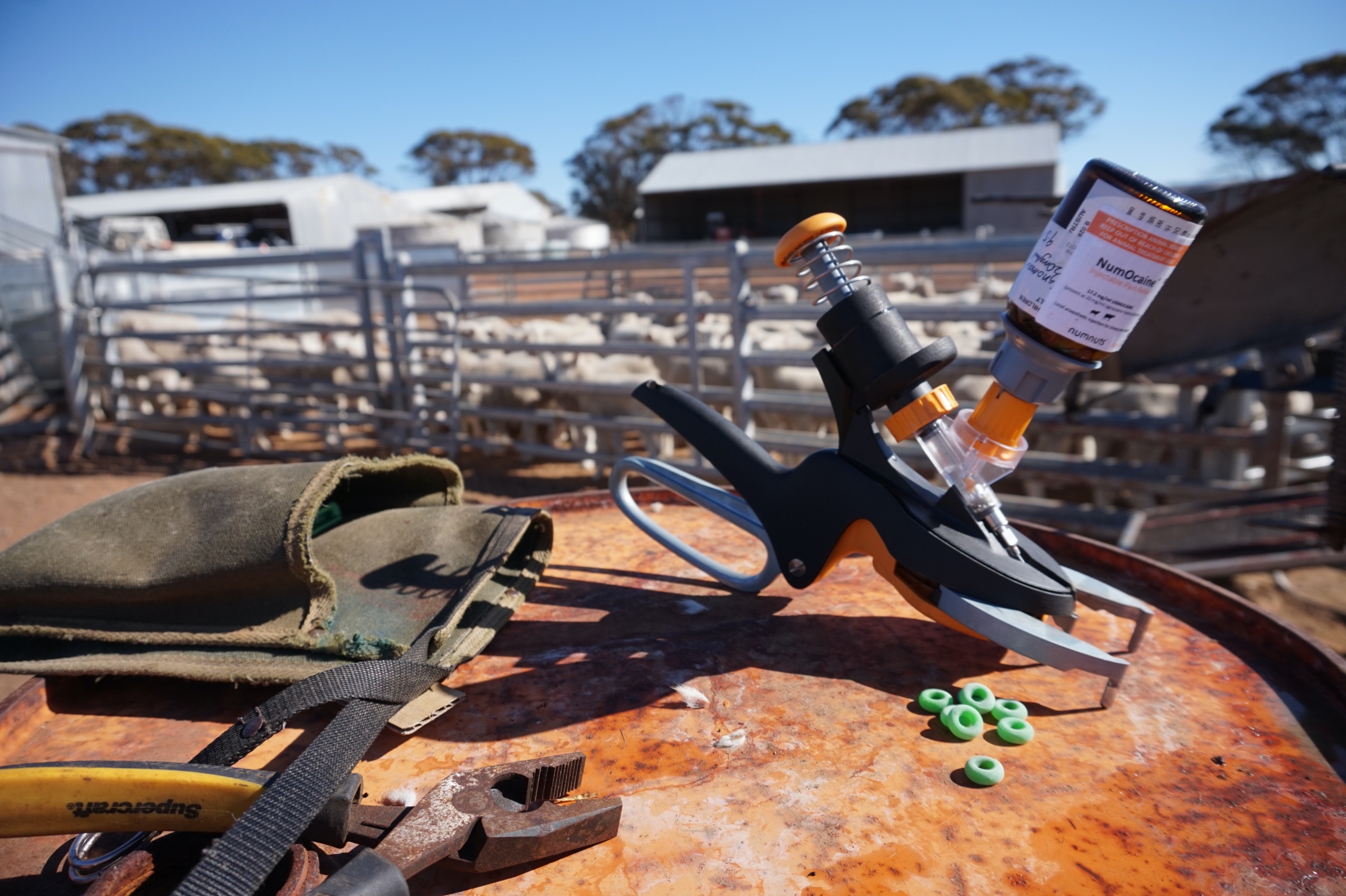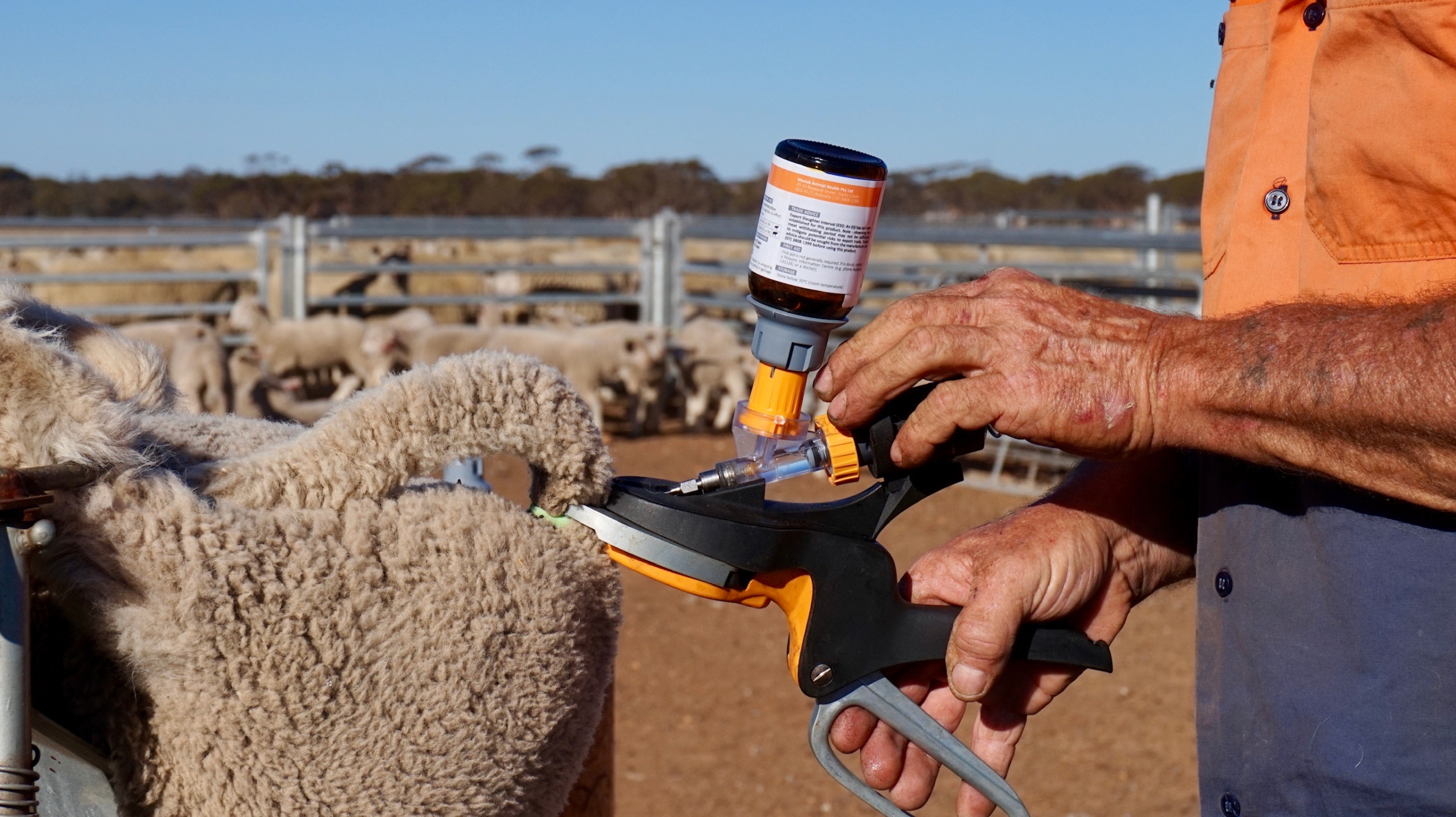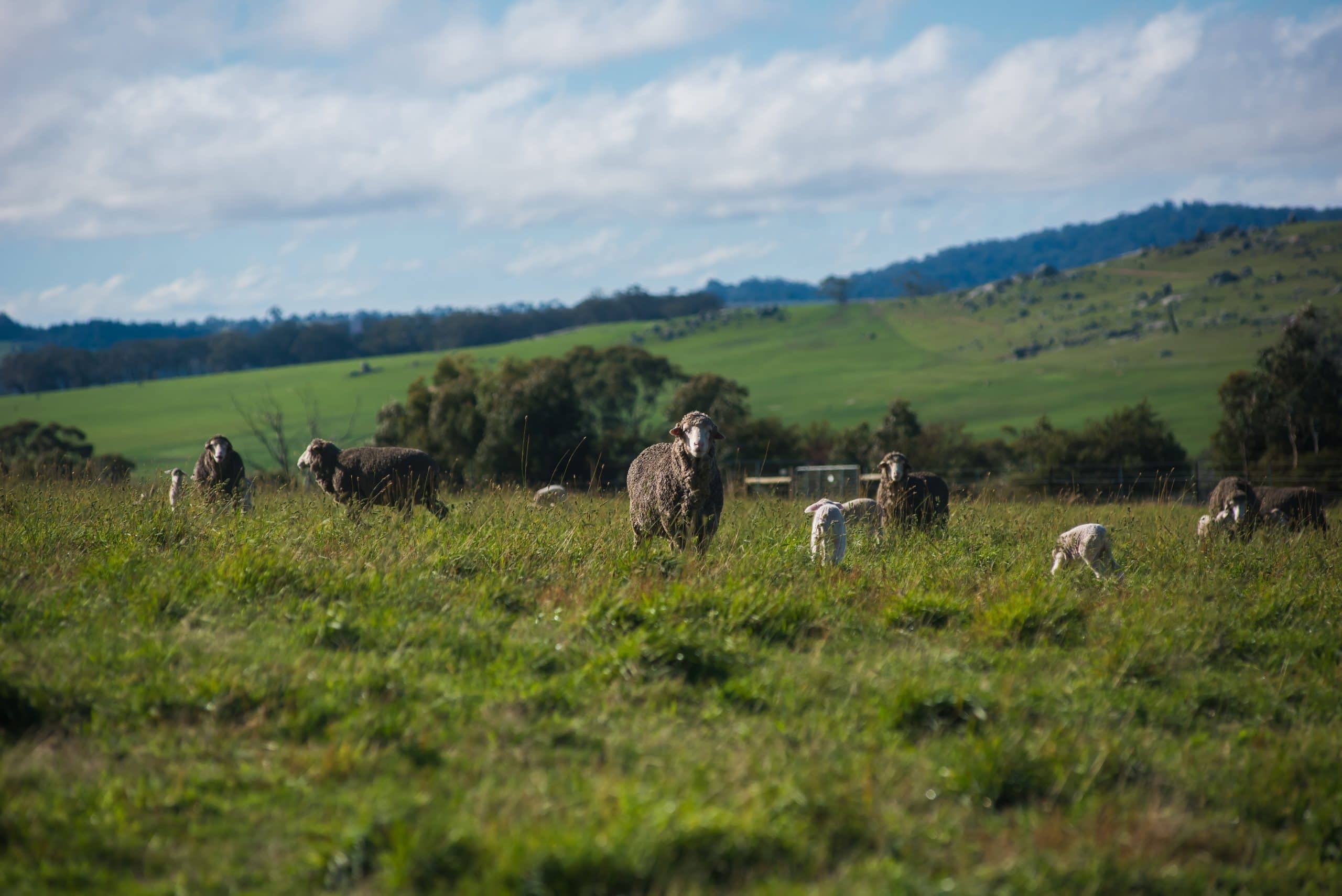Numnuts gears up for investors to accelerate commercialisation
A Scottish agritech startup is set to transform one of the world’s most common sheep husbandry practices. To potential investors, it’s an opportunity that doesn’t come around very often.

When the UK government in 2008, tasked the sheep industry with improving welfare outcomes during ring castration and tail docking, it posed a problem of product design. Pain relief products already existed.
The challenge was how to create a tool that farmers themselves could safely use to deliver the dose to where it was needed, at the same time the ring was applied, and in a single procedure. Solving that would help solve one of the greatest challenges in modern sheep husbandry.
This is where Senesino comes in, the agritech startup with a lofty ambition to provide innovation to enhance farming and animal welfare.
Numnuts is their response, the single-action handheld device that dispenses a rubber ring and injects local anaesthetic NumoCaine when lambs are marked. It’s simple technology that offers the industry an innovative solution to what Numnuts’ Director Robin Smith calls, “the welfare skeleton in the farmyard closet”.

The welfare benefits are clear; the local anaesthetic can assist with reducing pain in marking and the data shows it’s effective for detailing. MLA is investing in a research and development project to validate the efficacy in castration, to provide more data.
Windora cross-bred sheep producer, Audrey Bird was one of the first innovators to trial Numnuts on her property 250km east of Perth, Western Australia. Robin explained, while early adopters have led the way, it’s becoming more and more mainstream.
By 2017, more than 30% of the Australian wool market was using pain-relieving substances according to Australian Wool Exchange data, reflecting an upward trend. This has helped Senesino conservatively size up the opportunity and growth rate, based on half the ‘attainable market’.
“Commercial producers are taking it up as they realise the consumer trend is moving really rapidly towards ethical production.”
With growing industry interest and two successful seasons under its belt, Senesino is on the hunt for technically and commercially aligned investors, across the agritech, veterinary and pharmaceuticals industries, to help scale up its flagship product.
To learn more about this investment opportunity, please contact Kevin McGuckien, Senesino’s Finance Director HERE.
UK retail giant supports agritech innovation
Globally, consumers are increasingly demanding products from ethically-treated animals. And more farming practices are coming under scrutiny from animal welfare groups. To meet these expectations, retailers are seeking welfare-friendly suppliers. Leading them is UK retail giant, Tesco.
Tesco just awarded Numnuts first place in its Agri T-Jam 2020, offering Senesino unparalleled access to its supply chain. It’s a significant opportunity and to Robin, a strong signal to the global supply-chain that animal welfare matters. He expects other retailers to follow suit and demand higher welfare standards from suppliers across a range of industries and practices – and Senesino is in the box seat to capitalise.
Prompting innovation in a 70-year-old technology
Revolutionising a process that hadn’t changed much in 70 years was a tough ask. It took eight years, hundreds of prototypes and international collaboration led by Scottish product design engineering company 4c Design, with partners Moredun Research Institute (Scotland), Meat and Livestock Australia (MLA), CSIRO and Australian Wool Innovation (AWI).
By taking a common local anaesthetic and adding value through clever dispensing and packaging, the team of design engineers, vets and scientists created a product that producers can use to administer effective pain relief safely, precisely, and rapidly, improving welfare outcomes for lambs while improving user safety.
Being thoughtfully designed for both left and right-handed use, and for male and female hands, the applicator tool helps reduce the risk of repetitive strain and needlestick injuries.
As a platform technology, Robin said the Numnuts value proposition is in the dispensing and it is this technology, which offers so many prospects for growth and diversification.
Transferrable agritech innovation

The market for sheep production is significant, with 100 million lambs born in Australia, New Zealand and the UK each year, offering the potential for transfer to other industries will excite investors. Senesino is already pursuing the development of Numnuts for the cattle market – globally a much larger industry both in size and value, particularly in the USA.
Feasibility studies into the use of Numnuts in the cattle and dairy industries have begun with positive results, yet research and development investment is required to access these significant markets, Robin explained.
The technology also lends itself to administering other animal treatments, such as vaccines.
“The potential is in taking what we’ve created and upcycling into novel systems and methods for getting veterinary drugs into animals. That’s the real value. Numnuts is the flagship product, but we hope to help tackle some other issues that we know exist out there.”
The patented dual-stage injector and quick-change cartridge could even be used in human healthcare. By upcycling its existing technology, Senesino could have a product capable of “administering any pharmaceutical drug that needs to be dispensed cleanly and quickly, without the guesswork”.
The next step: scaling up production
Like many startups, Senesino’s road to commercialisation wasn’t entirely smooth.
Since its June 2019 Australian launch, it has faced environmental and commercial challenges, including agricultural retailers and veterinary wholesalers hesitant to take on the risk of an innovative product.
But Senesino is a better company for it, having built its own distribution infrastructure, database, e-commerce shop, industry connections and a direct-to-customer model that fosters meaningful access to its users.

The industry response has been resoundingly positive, said Robin. In 2019, Numnuts sold 200,000 doses. One year on, coming off the back of the worst drought in 30 years and amid a global pandemic, they’ve sold 1 million.
“Senesino expects Numnuts to scale at 2.5 times year on year. Should regulation changes accelerate growth, we could see 7, 8, even 10 million doses around the corner.”
To reach this potential and scale-up for the New Zealand launch in 2021, Senesino needs investor support. But chemistry is important to Robin. “We’ve kissed a lot of frogs. We’re looking for more than just the money. We want active partners that can help us grow and meet our mission.”
Robin is passionate about, “Adding real value and real worth to the world. I’ve put my life and soul into building Numnuts and getting it off the ground.”
To learn more about this investment opportunity, please contact Kevin McGuckien, Senesino’s Finance Director HERE.
Enjoyed this story? Want to learn more about the Asia Pacific region’s innovative agrifood tech ecosystem? Sign up for our newsletter here and receive fresh stories about global leaders, farmers, startups and innovators driving collaborative change.
